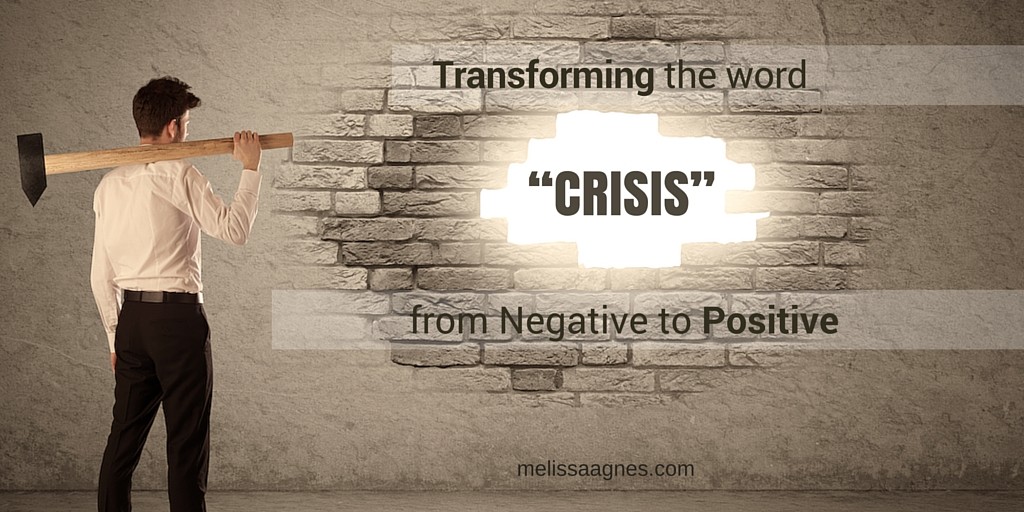
A LinkedIn connection of mine recently wrote me an interesting message. He began the message with the sentence: “Why CRISIS is a bad word,” and followed it up with the following wordplay –
People:
Create their problems;
React by blaming others;
Infer that all will be okay;
Secure themselves behind false claims;
Independent they become instead of working as a collective; and
Sue to protect the little honour they have left.
I found this play on the word “crisis” particularly interesting because, indeed, if this is how an organization – any organization – chooses to see and conduct their crisis management, “crisis” would indeed be a bad word. It would also be the beginning of the end for the organization that chooses to implement this mindset into their crisis management – or at the very least, the beginning of the end of the careers of those accountable for the organization’s crisis management. (For some reason Volkswagen comes to mind here, I wonder why?)
But this isn’t the connotation of the word “crisis,” is it?
Not even a little bit!
If you’ve ever heard me speak, worked with me, listened to my podcast or read this very blog, then you’re perfectly aware that crises should be seen as the complete and utter opposite of what is described above.
So, in response to my LinkedIn buddy, I came back with the following, more appropriate way of interpreting the word “crisis”. Take a look:
Create opportunity to maintain/strengthen relationships with stakeholders;
Respect and validate stakeholder feelings/sentiment towards the incident and the organization;
Initiate corrective actions and behaviors to right wrongs and ensure such an incident never happens again;
Stay true to words spoken and promises made;
Instil a corporate culture that focuses on trust-building and effective issues management; and
Sustain business and reputation by learning from mistakes made and continuing to put stakeholders first and foremost.
What’s fun about these wordplays
One of the secrets to successful crisis management is to embed a corporate culture that puts high-priority on stakeholder trust, ethical business practices and instils a mindset that seeks to continuously find the opportunities in all situations, including those that may be less than ideal.
What I like best about both of these plays on the word “crisis”, is that the former “definition” offers a clear-cut way to conduct poor crisis management and bury your organization as a result. So, if you’re wondering how you could fail dramatically at crisis management, feel free to use the first play on words and you’ll have a sure-fire recipe!
Meanwhile, the latter provides a simple reminder of the mindset every organization should strive, every day, to achieve and embed within their corporate culture. The type of mindset that will successfully help you manage any crisis or issue that may come your way.
Which play on the word “crisis” best represents your organization?
photo credit: ra2studio/shutterstock

Author of Crisis Ready: Building an Invincible Brand in an Uncertain World, Melissa Agnes is a leading authority on crisis preparedness, reputation management, and brand protection. Agnes is a coveted keynote speaker, commentator, and advisor to some of today’s leading organizations faced with the greatest risks. Learn more about Melissa and her work here.

Well said! And in doing so you’ve demonstrated the power of opportunity. I suppose that for some, the word “crisis” could be scary if it insinuates circumstances that are beyond our control. But with an established and thoughtful organizational culture, any crisis is manageable because the foundation – from the ground up – has already been laid within the corporate mindset. Good job!
Well put, Mona.
Great remarks! The term “crisis” is taboo in public relations because of the traditionally negative connotation it possesses. However, I think your definition enlightens to the fact that crises create opportunity for corrective action, growth, and display of company/organization integrity. Assuming the worst before a crisis is a sure way to have an ineffective crisis response.
I love your line about “assuming the worst before a crisis is a sure way to have an ineffective crisis response.” Mindset helps to shape the outcome, I completely agree!
This was so powerful to read. I love seeing CRISIS being emphasized instead of put down in a negative connotation. An important key to the business is the power of movement through difficult situations.
“The power of movement through difficult situations” is a strong statement. It could go either way, but when the movement is powerfully positive – what an opportunity to embrace!